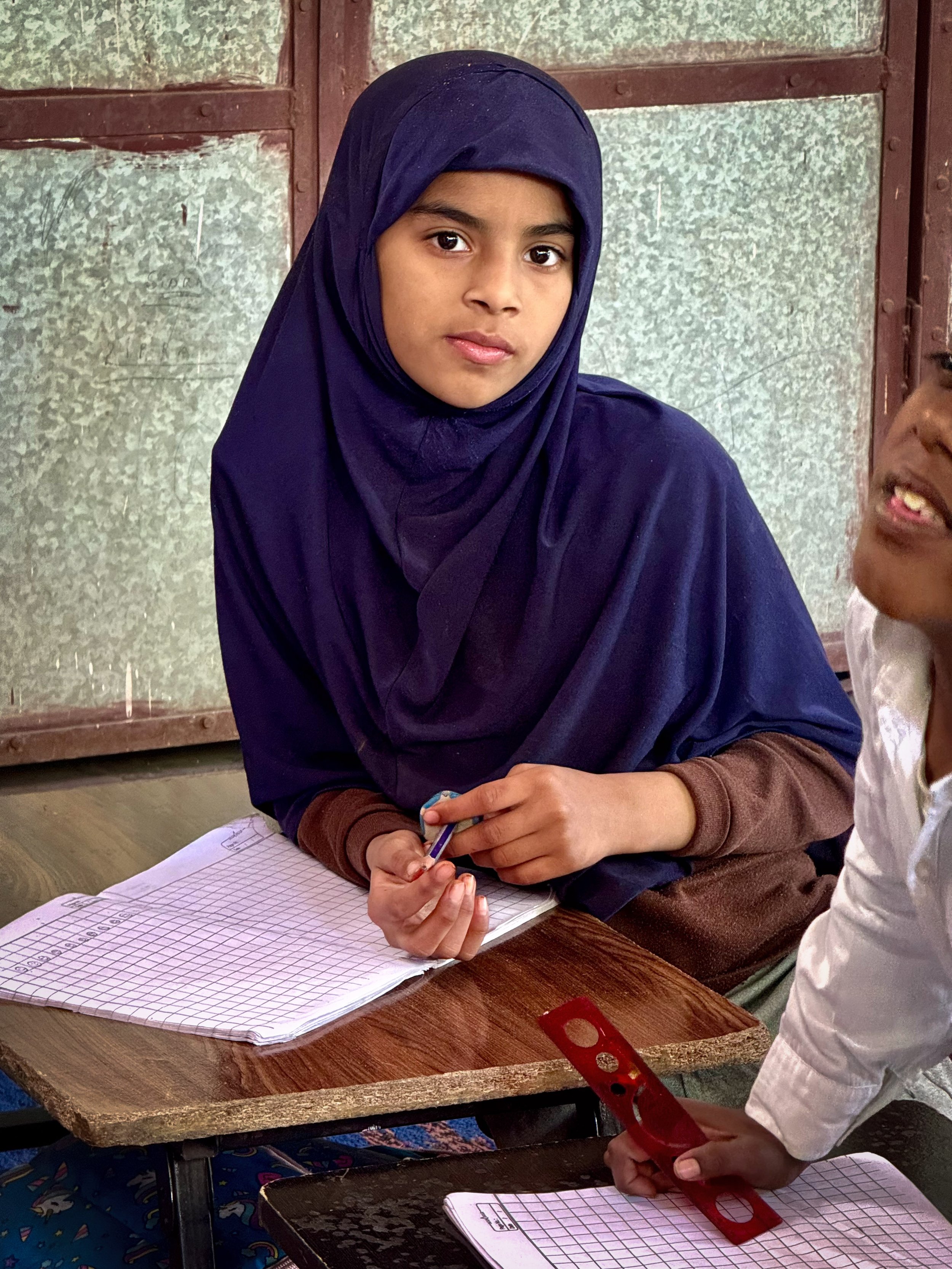Opening the Door to Education
Education is key to fighting poverty and education is a key component of all of Sambhali’s programs in Empowerment Centers, Primary Education Centers, boarding homes, and workshops for the greater community on gender-based violence and sexual and reproductive health.
Yet even basic education is often missing. While primary school is mandatory for Indian children between the ages of 6 and 14, it is far from the reality for many children in Rajasthan. Sambhali Trust’s Primary Education Centers, or PECs, help Rajasthani kids get the solid foundation they need.
The PECs in the cities of Jodhpur and Jaisalmer and the rural village of Setrawa serve nearly 300 children per year. Besides basic instruction in Hindi, English, and math, the centers also offer workshops on topics including preventing child sexual abuse, daily hygiene, sanitation, nutrition, and the environment. Many of the children have mothers who attend the Empowerment Centers in the mornings in the same locations, which reinforces the positive lessons and experiences through generations.
An important goal is to build a lifelong love of education. Sambhali staff work to build trust with the students and their families, give students a safe space to be themselves, and find joy in learning.
And that can take time. Asha, one of the PEC teachers, relayed this story of a student attending the Laadli PEC:
“When Kamini* was admitted to our center, she was not good at her studies, and she did not want to [be there]. We started to talk with her to make her friendly towards us and this resulted in her starting to come to our center daily and focusing on the class. Now she is very curious to know about everything. She likes to do activities in the center and play games there.”
Now, more than ever, we understand how vital those services are in Rajasthan. Barbara Epp and Harini Varadarajan, two remarkable volunteers with Sambhali U.S., have combed through data collected by the World Bank, India’s Ministry of Statistics and Programme Implementation, and Sambhali Trust community-based surveys to better explain the status of women in the places Sambhali Trust serves.
Literacy
Rajasthan ranks absolute last among all of India’s 22 states in women’s literacy. Only 58% of women in Rajasthan are literate, a full 12 percentage points below the women’s national average of 70%, and 27 percentage points below the men’s national average of 85%. (1), (2)
As bad as that is, women’s literacy in the communities that Sambhali serves is less than half the rate for the state of Rajasthan as a whole. Only 28% of women in Sambhali’s target communities can read and write. That leaves 72% who are illiterate. (2), (3)
School Completion
In the state of Rajasthan, only 33% of women have completed middle school (i.e., through 8th grade). That compares with a rate of 58% for Rajasthani men and 46% for women in India as a whole. (5)
In communities served by Sambhali, fewer than 10%—only 9.7%—of women have completed middle school. That is less than a third of the rate for women in the state of Rajasthan, and well below a quarter of the 46% rate for women in India overall. (5), (6)
Sources
1. The World Bank Open Data, Literacy rate, adult female (age 15+), India, 2022. Extracted July 2023 from https://data.worldbank.org/indicator/SE.ADT.LITR.FE.ZS?locations=IN&view=chart
2. page 43, Statement 3.3.1: Literacy rate (in per cent) among females (urban + rural) of age 7 years and above for different States and all India. Household Social Consumption on Education in India 2017-18, Ministry of Statistics and Programme Implementation, National Statistical Office. Extracted 3 October 2023 from https://www.mospi.gov.in/sites/default/files/publication_reports/Report_585_75th_round_Education_final_1507_0.pdf
3. Sambhali Trust surveys of 227 adult women in seven neighborhoods in Jaisalmer and Jodhpur.
4. The World Bank Open Data, Educational attainment, at least completed lower secondary school, adult female (age 25+), cumulative, India, 2022. Extracted 17 October 2023 from https://data.worldbank.org/indicator/SE.SEC.CUAT.LO.FE.ZS?locations=IN&view=chart
5. Page 51, Statement 3.4.1: Percentage distribution of persons of age 15 years and above by highest level of education successfully completed for different States (female urban + rural) (cumulative middle school and higher) Household Social Consumption on Education in India 2017-18, Ministry of Statistics and Programme Implementation, National Statistical Office. Extracted 17 October 2023 from https://www.mospi.gov.in/sites/default/files/publication_reports/Report_585_75th_round_Education_final_1507_0.pdf
6. Sambhali Trust surveys of 227 adult women in seven neighborhoods in Jaisalmer and Jodhpur. Percentage who completed Class VIII or higher.
*Names of minors have been changed
Six days a week at Sambhali’s eight PECs there are children learning and laughing. Many days Asha is interrupted in her teaching by a family asking to be added to the waiting list. We are so grateful the work of the PECs at Sambhali Trust continues to expand, thanks in part to the donors of Sambhali U.S. The need is there and the children are ready.




